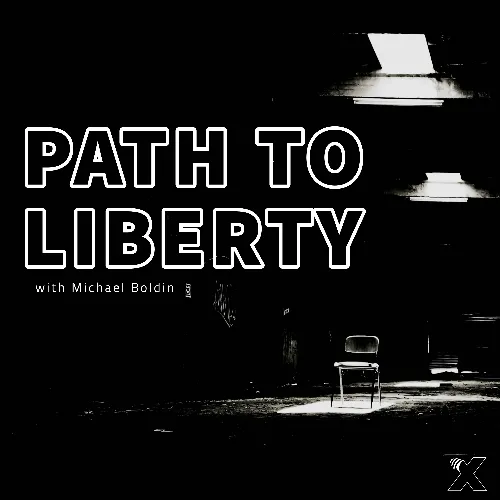
Path to Liberty
Every Monday, Wednesday and Friday, Michael Boldin covers current events, the original constitution and strategy - all with an eye on advancing liberty.
- Update frequency
- every 3 days
- Average duration
- 27 minutes
- Episodes
- 319
- Years Active
- 2023 - 2025

4 Forgotten Principles That Fueled the American Revolution
Division of power, precedent, the right to resist, and more – essential – and totally forgotten – principles that fueled the American Revolution. They’re all drawn from John Dickinson’s 1767 Letters …
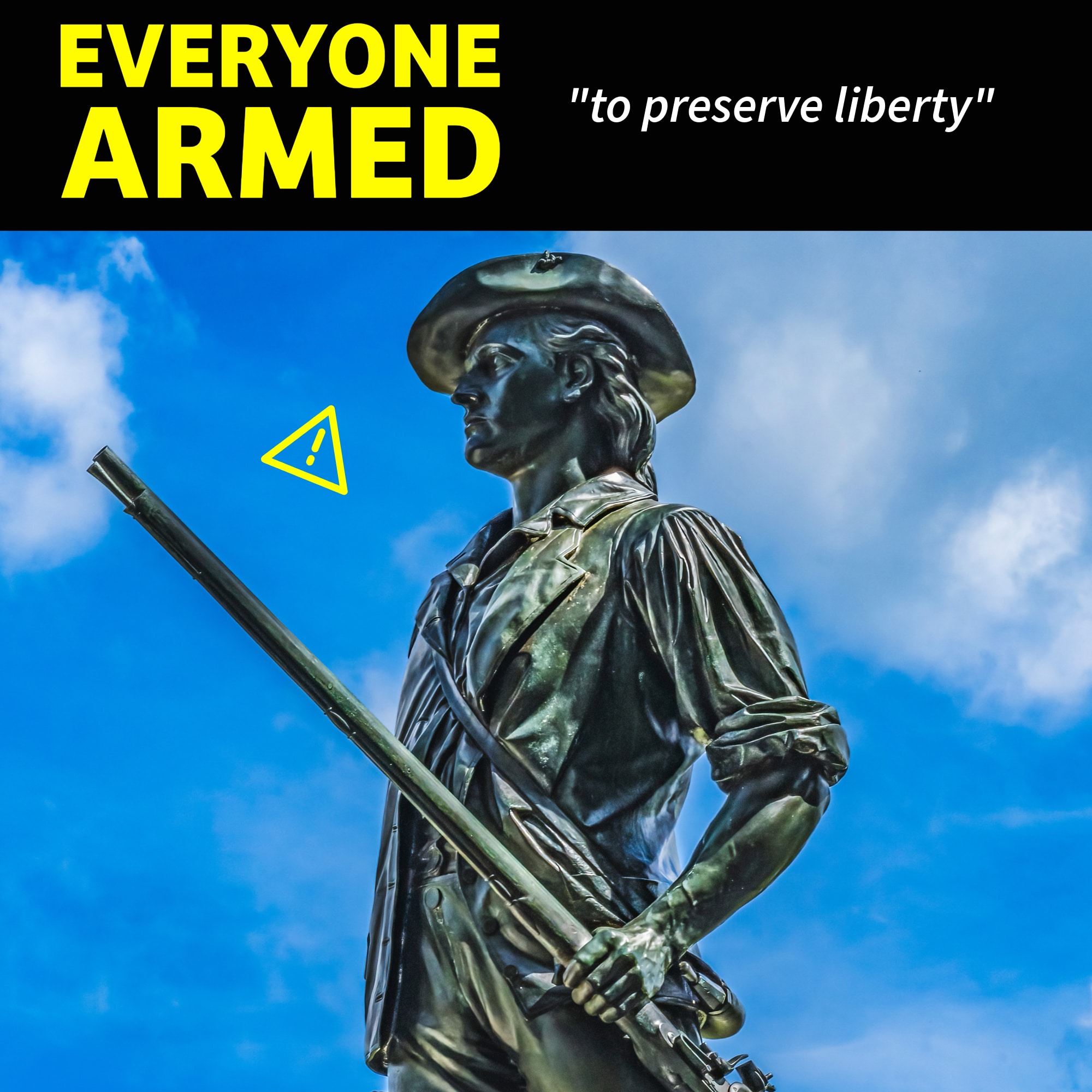
2nd Amendment: Everyone Armed to Preserve Liberty (Founders Warnings)
The founders knew that an armed society was essential to preserving liberty – because they lived it first hand. In fact, this was one of the most critical lessons they passed down to us. In this epis…

Trust No One with Power: Forgotten and Ignored Warnings from the Founders
The Founders warned us – over and over again – that power always expands, no matter who holds it. So, you can’t trust anyone with power, no matter how much you like them or what they do, because that…

Forgotten Founder Tench Coxe: The “Other” Federalist Papers Revealed
His writings had far more influence on the debates over the Constitution than the Federalist Papers we hear so much about today. In this episode, learn his top-4 arguments for ratification, including…

Cabinet Picks Clash: Washington’s Team and America’s First 2-Party System
“I would wish the debt paid tomorrow; he wishes it never to be paid, but always to be a thing wherewith to corrupt and manage the legislature.” This slapback from Secretary of State Thomas Jefferson …

Most Underrated and Ignored Founder: John Dickinson, Penman of the Revolution
“We cannot be happy without being FREE.” Those words come from John Dickinson, who saw LIBERTY as the foundation of everything else. Once almost as famous as Benjamin Franklin, Dickinson is almost to…

Nullify: Thomas Jefferson’s Radical Declaration They Want You to Ignore
“A nullification of the act is the rightful remedy.” That’s how Thomas Jefferson put it in his draft Resolutions against the Alien and Sedition Acts. On November 10, 1798, the Kentucky legislature pa…

President OATH to the CONSTITUTION: 5 Steps to Protect and Defend NOW
It’s time to walk the walk. Right now, the Constitution is treated as little more than an optional guide – at best. Or toilet paper. In this episode, learn the top-5 most crucial steps an oath-keepin…

You Can’t COMPLY Your Way Out of TYRANNY: The Forgotten Foundation
This principle – central to the American Revolution – has been almost totally forgotten and ignored. On this episode, we’re uncovering powerful warnings from leading Founders and Old Revolutionaries …

Oath to the Constitution: Ignored and Betrayed Daily at the Cost of Liberty
“If their duty, their honor, and their oaths will not bind them, let us not put into their hands our liberty, and all our other great interests.” Those are the words of Gouverneur Morris, the “penman…

REFUSE TO COMPLY: How the Stamp Act Was Nullified
Refuse to comply. That’s exactly what the people did to bring down the Stamp Act once it went into effect on November 1, 1765. We’ve all heard about the fiery protests and the bold resistance, but th…

Repeal the 17th Amendment: Ignored Anti-Federalist Warnings on the Senate
Repealing the 17th Amendment is the right move to help restore federalism – but is it enough? The Anti-Federalists warned us about dangers in the Senate’s structure long before the 17th came along, a…

Most Important (and Ignored) Veto in History: James Madison’s Last Stand
On his very last day in office, James Madison shocked Congress by vetoing an infrastructure bill – even though he supported the idea behind it. Madison refused to sign off on the measure, saying it d…

Articles of Confederation vs Constitution: 6 Key Differences You Need to Know
A deep dive into six key differences that demonstrate how the Articles were much closer to a pure system of federalism than the Constitution for the United States. We’ll cover topics like representat…
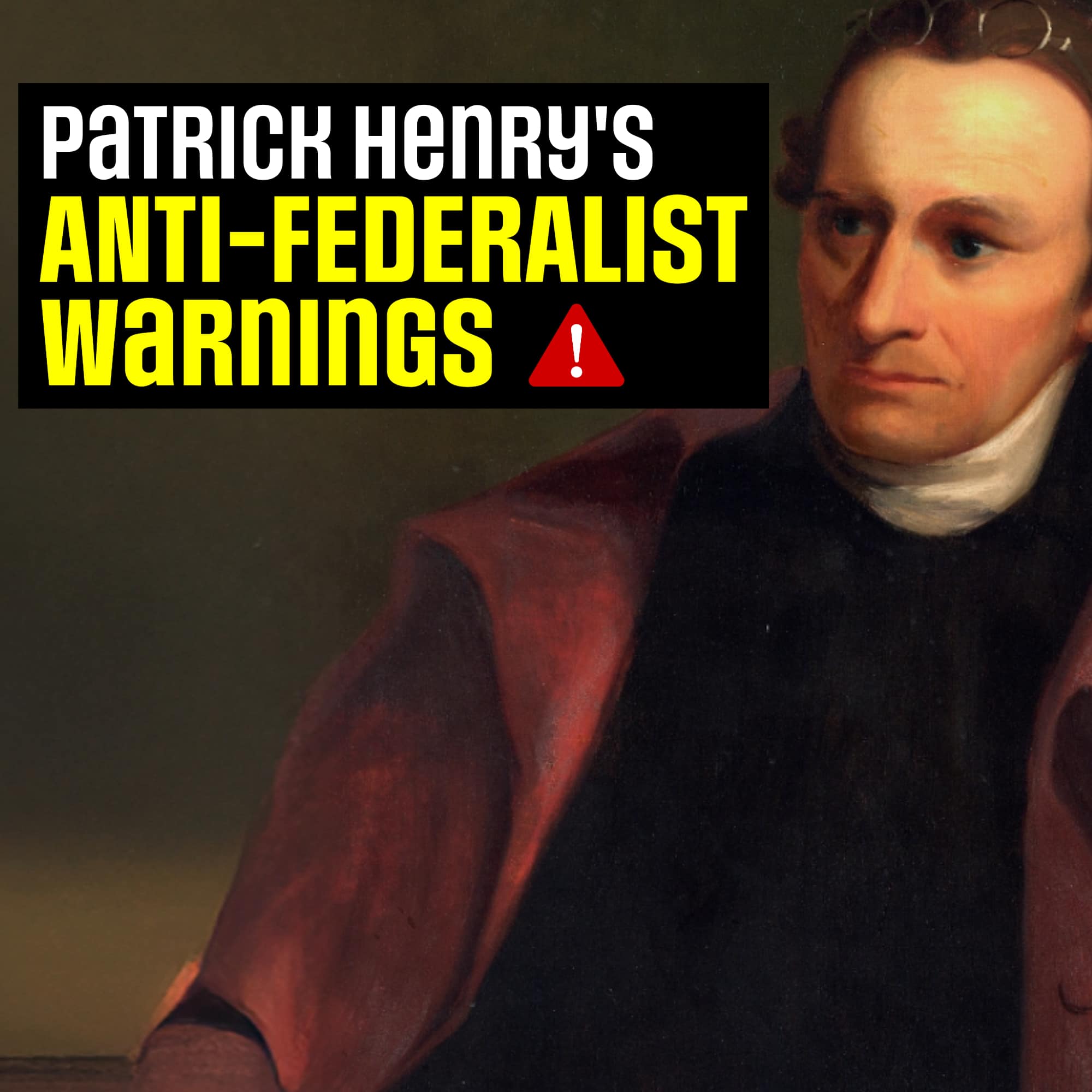
Patrick Henry vs the Constitution: Ignored Anti-Federalist Warnings
This government “will swallow the liberties of the people, without giving them previous notice.” That’s the stark warning Patrick Henry gave us in 1788. In a series of fiery speeches, he laid out som…
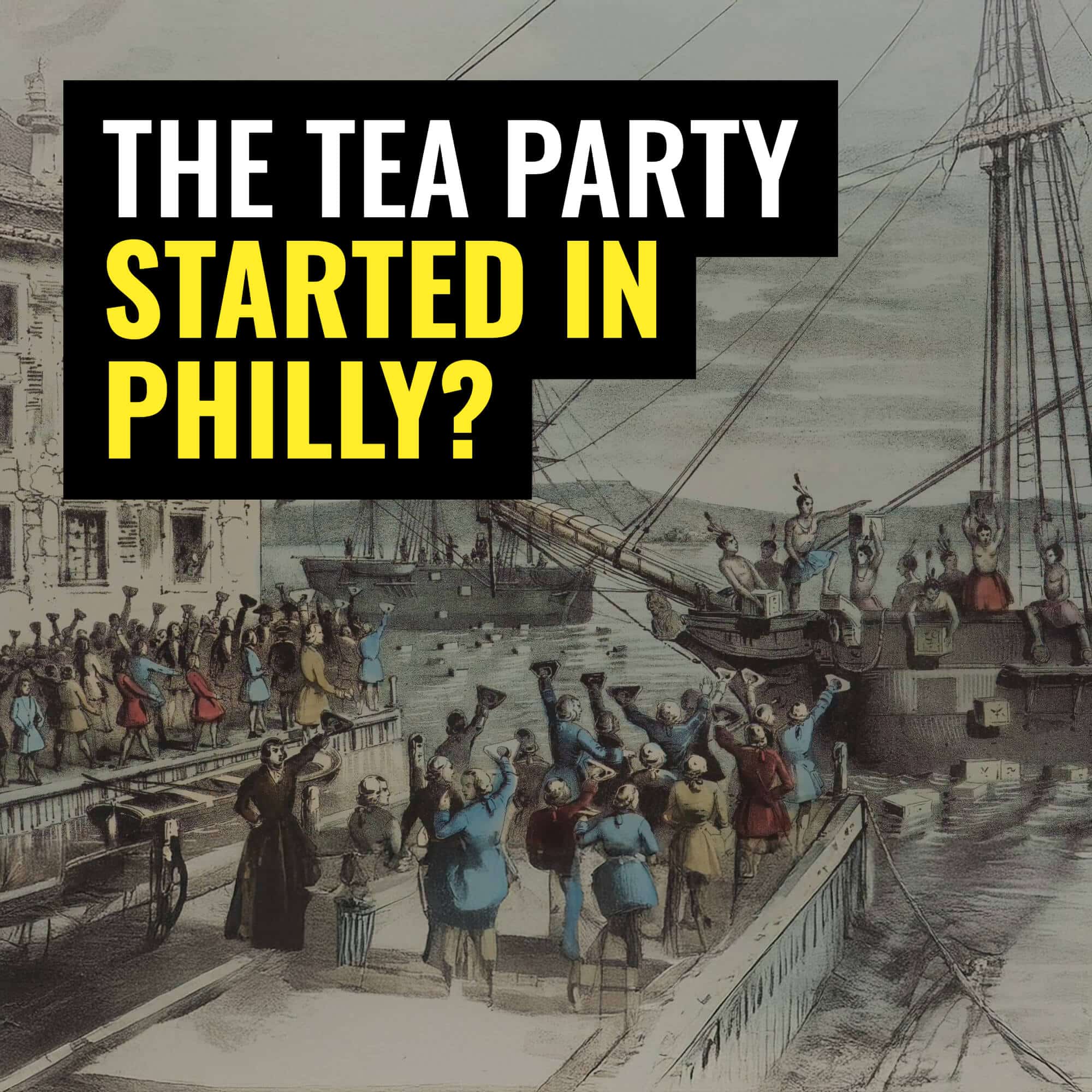
Boston Tea Party? It Actually Started in Philadelphia!
“The active business of the American Revolution began in Philadelphia.” That’s what Benjamin Rush and John Adams believed – because the spark that ignited the Boston Tea Party wasn’t in Boston. It wa…

Forgotten 1774 Declaration: Precursor to Independence and Bill of Rights
“To these grievous measures, Americans cannot submit.” That’s the bold declaration that helped spark a coordinated resistance across the colonies in 1774. On this episode, commemorating the 250th ann…

Cato vs the Constitution: Forgotten Anti-Federalist Arguments
“A vile and arbitrary aristocracy or monarchy” – that’s what the Anti-Federalist writer Cato warned we’d get. In a series of seven essays, he laid out his strongest arguments against ratification of …
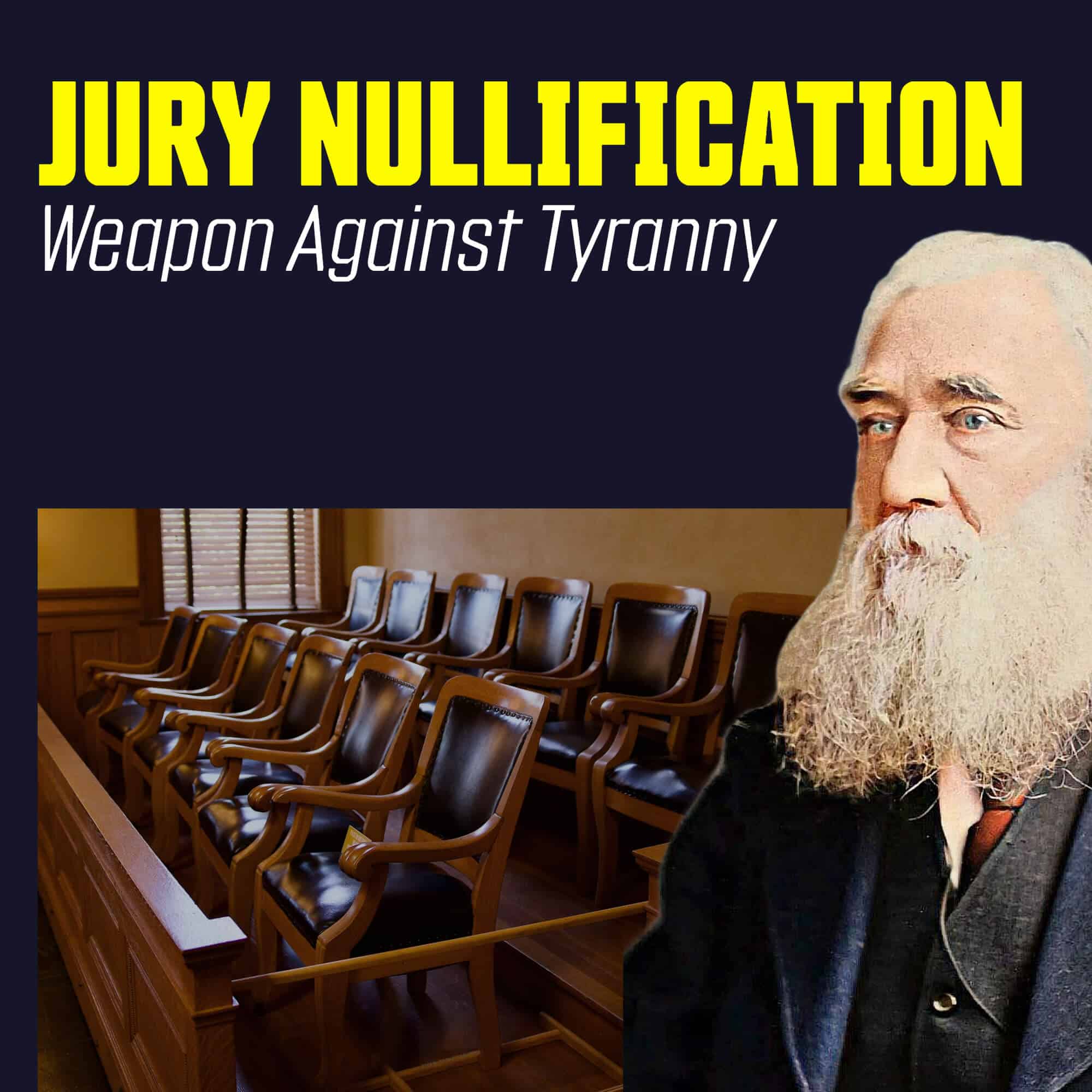
Jury Nullification: The People’s Secret Weapon Against Tyranny
Thomas Jefferson called the trial by jury as the only anchor ever imagined by man that can hold a government to the constitution. And jury nullification is how to get that done. In this episode, lear…
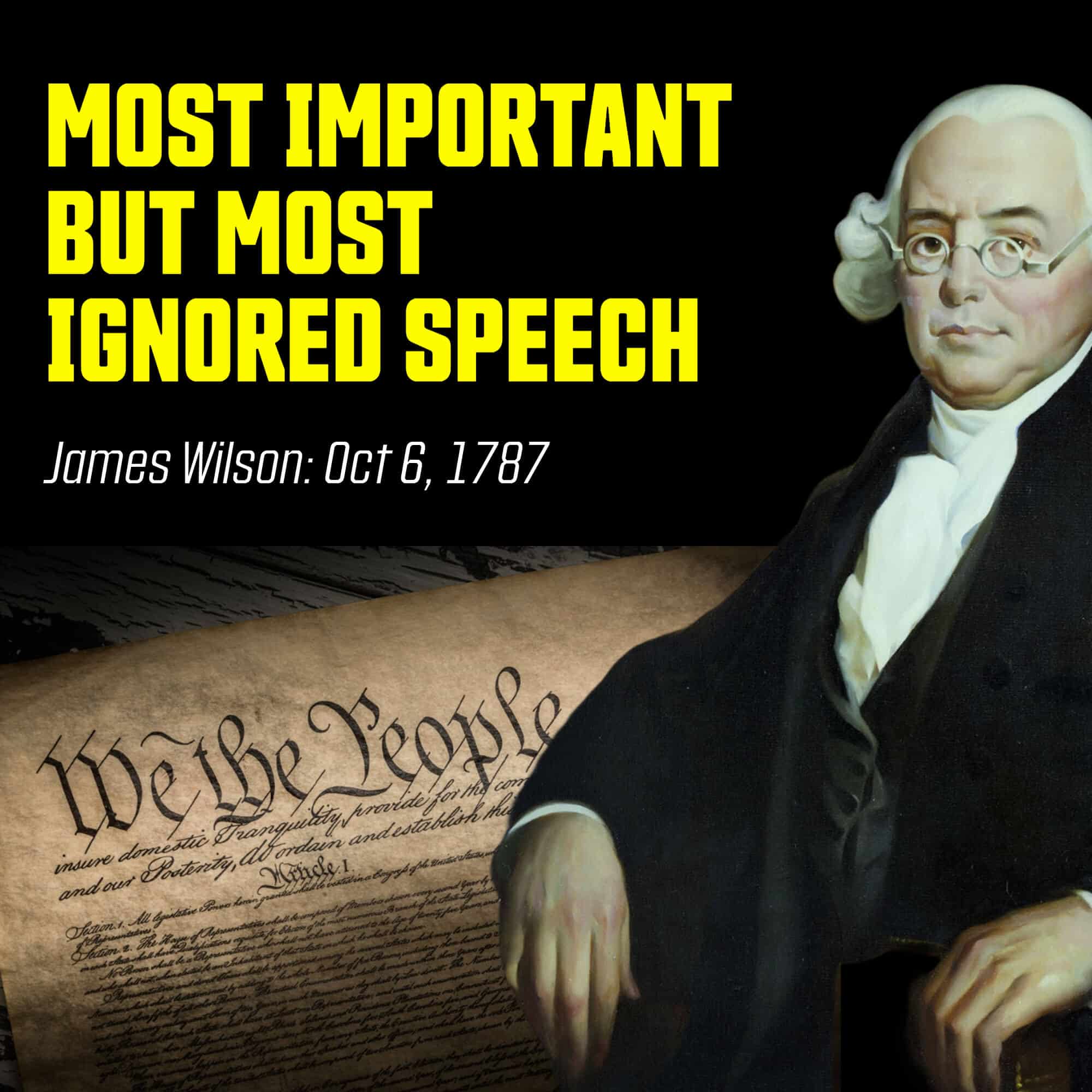
Most Important and Most Ignored: James Wilson’s State House Yard Speech
Everyone’s heard of the Federalist Papers – Hamilton, Madison, Jay – but the most important Federalist speech in the entire ratification debate didn’t come from any of them. It came from James Wilson…